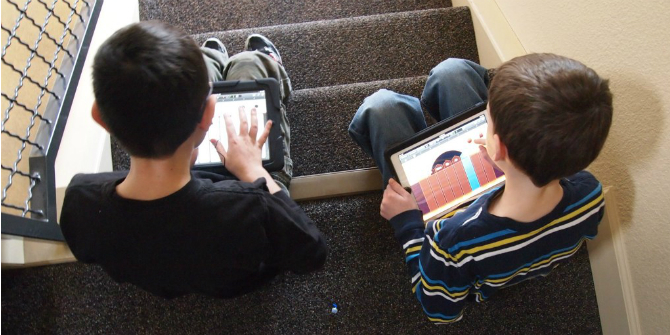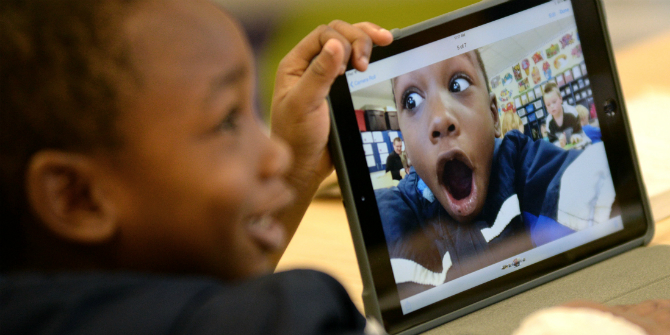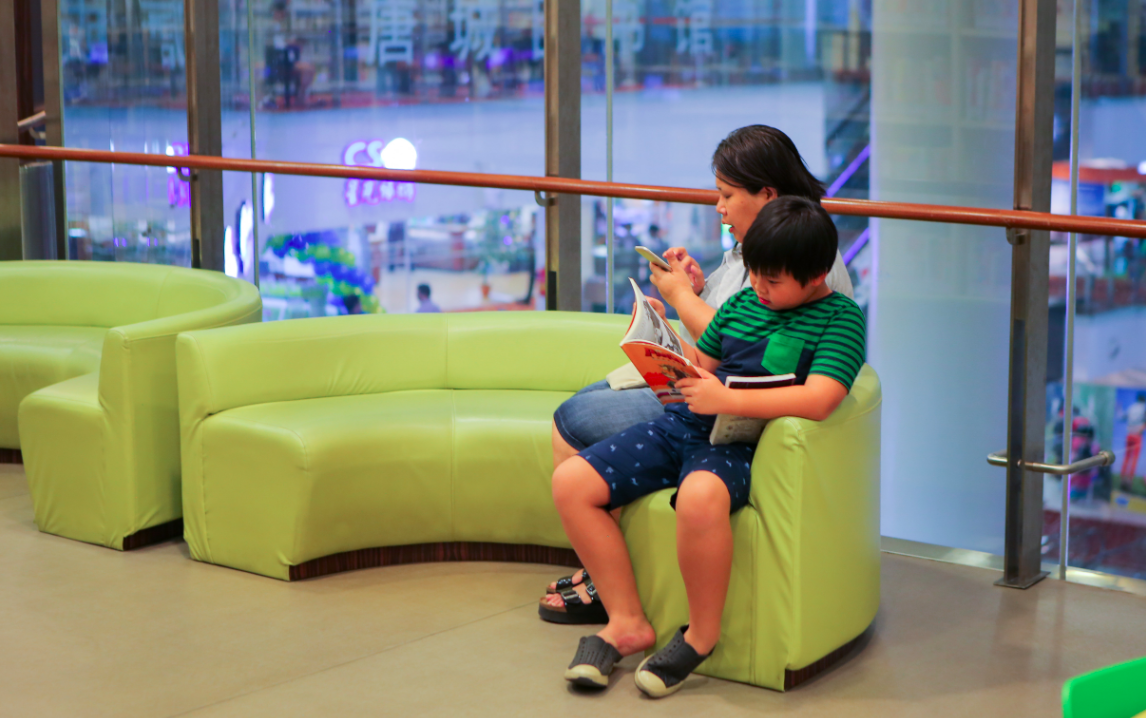 Credit: B. Flickinger, CC BY 2.0
Credit: B. Flickinger, CC BY 2.0
Adi Kuntsman and Esperanza Miyake argue that we live in a time where the digital is often adopted without question. They investigate the reasons behind parents’ increasing digital disengagement, and the impact of this on children’s digital futures. Adi and and Esperanza¹ are based in the UK at Manchester Metropolitan University, where they conduct an ongoing investigation of digital disengagement at the intersection of media studies, digital studies, and critical social research. Their earlier collaborative work examined the relations between raciality and queer cultures.
Digital sick notes
‘Is Wi-Fi making your child ill?’, asks the title of an article, published in the Health section of The Telegraph earlier this year. Discussing the relationship between children, schools and radiation emitted by Wi-Fi, mobiles and other wireless devices, it was read widely and re-posted on social media, especially by parenting groups and collectives, and particularly those advocating for alternative, ‘natural’ ways of parenting. You only need to browse through similar sites of most newspapers these days to quickly realise that such a question is being asked with increasing frequency and anxiety, part of a larger media discourse that ties parenting to concerns about digital communication technologies, devices and platforms. The concerns are many – from those relating to health and wellbeing, to those addressing social relations, to dealing with education and discipline, or concerned about privacy.
Digital concerns, concerned parents
In some respects, these echo the current chorus of concerned parents who are voicing their apprehensions about their children rushing head first into a digital future, encouraged to embrace technology at home, school and social life. The parents who are featured in these articles – as well as those who post and share them on social media – are overcome with anxiety in relation to the digital future (and the digital present!) of their children: is there too much communication technology? Are phones and tablets taking over children’s lives? Will social media infringe on the future digital footprint of today’s young people? In short, many parents are worried when they think about their children’s unfolding life in our current digital era, and a growing number of them are considering limiting the presence of the digital in their homes and everyday routines.
But these concerns about the digital are not unique to parents. Joining them are equally anxious professionals, educators and activists seeking to reduce the amount of digital tools and platforms in their lives. In times when the digital is often adopted without question, and when society sees itself as becoming ‘digital by default’, concerned citizens – parents and non-parents alike – are raising a critical question: should our future be digital? And if so, in which ways and to what extent? And what are our responsibilities towards it?
These were precisely the questions we began asking in our recent study on the growing phenomenon of proactive digital disengagement – digitally literate individuals and groups who are well integrated into the digital economy, and who nevertheless are choosing to reduce the use of digital technologies (smartphones, tablets, laptops) and platforms (browsing, social networks, email), or refusing them altogether.
Our methods included a survey of web-based materials (news articles, magazines, blogs, business and organisational sites written by, for and about these groups) and interviews with those who actively disengage from selected devices or platforms on a day-to-day basis.
Tracing the variety of motivations, degrees and practices of digital disengagement, our study suggests that the desire and need for digital disengagement should be seen less as a failure or a hindrance to adapt to the digital age – to ‘move with the times’ – but more as a conscious move against the growing digitisation of our lives, to advocate for alternative ways of engaging with life, be it in education, health, with friends and family, the environment or the workplace.
Parenting through digital disengagement
For parents, this means thinking about the different degrees of disengagement with the digital for their children and family, both in terms of duration (disconnecting for a defined period of time, ‘unplugging’ for one day, or leaving a platform or a device entirely), and in terms of intensity of use (from none at all, to a little, to occasional, to frequent). It is also about parents managing and negotiating aspects of everyday life where disengagement may be more difficult (for example, if a child requires technology for homework … what happens?). The conversation about such negotiations is ongoing – and paradoxically, it primarily takes place online.
So if we cannot disengage entirely from digital life – for whatever number of contradictory reasons –for parents, digital disengagement becomes an even more pertinent and urgent consideration: what are the alternative ways to negotiate the extent and intensity of children’s digital communication? Is it sustainable? What kind of (non?) digital futures can we open up for our children?
NOTES
¹ Adi and Esperanza have chosen to not include their photograph. The thumbnail image is associated with their ongoing research project.






